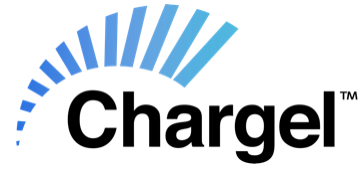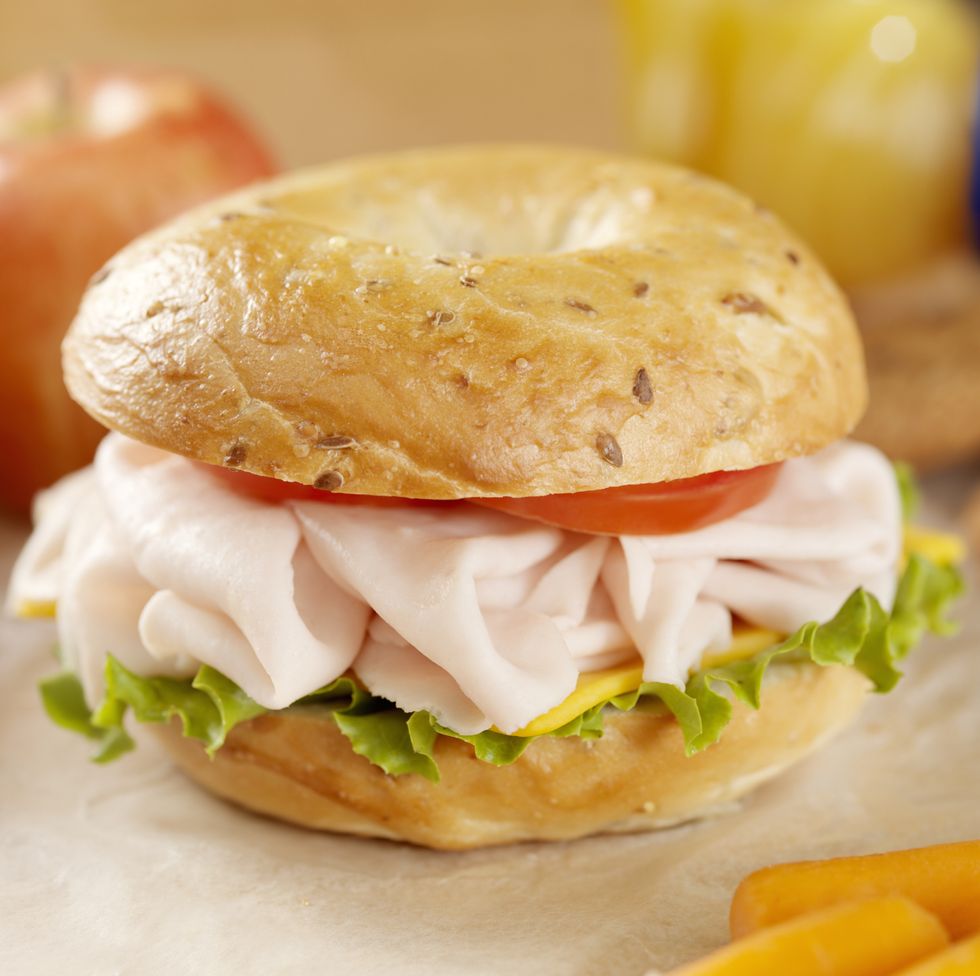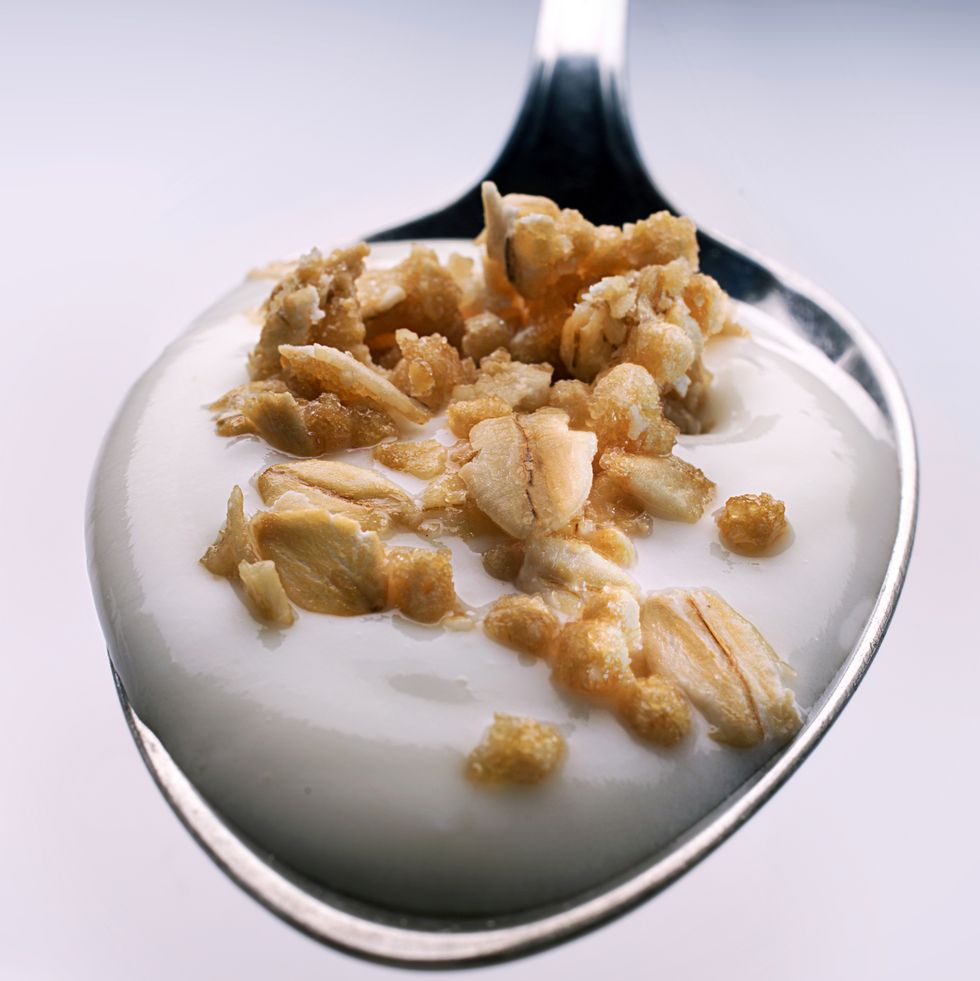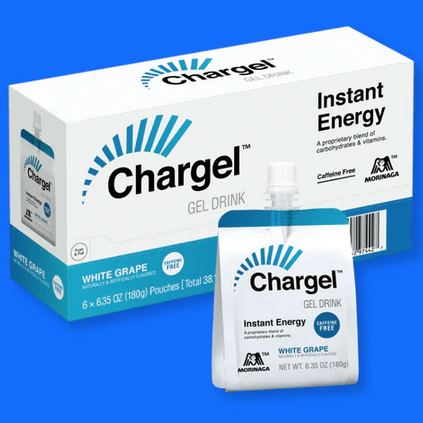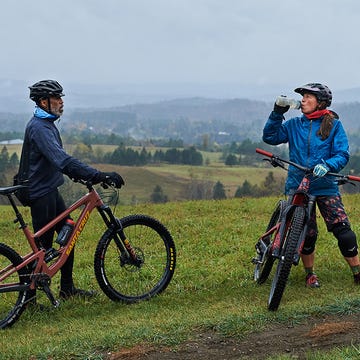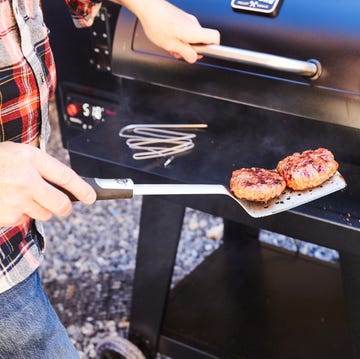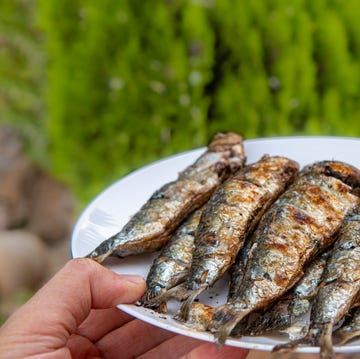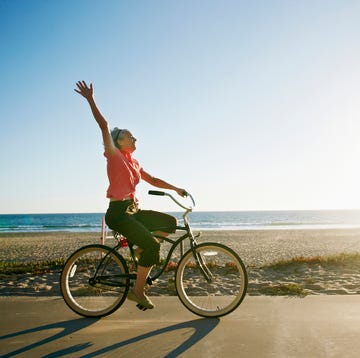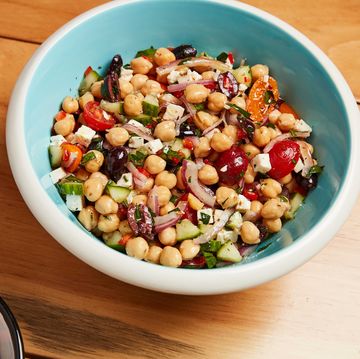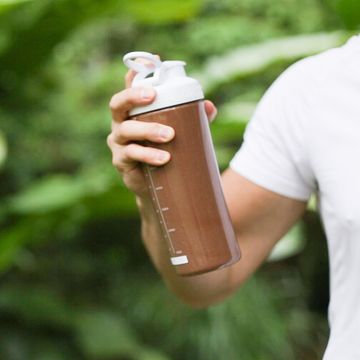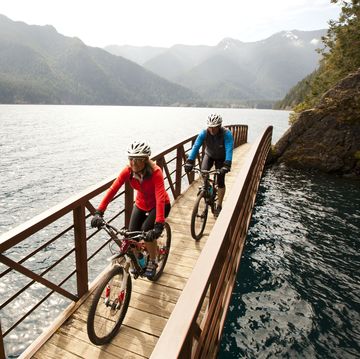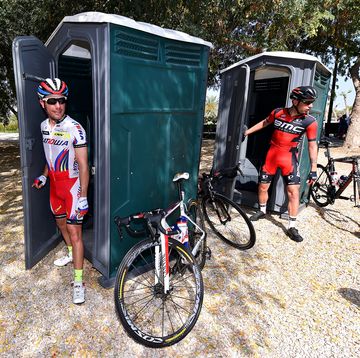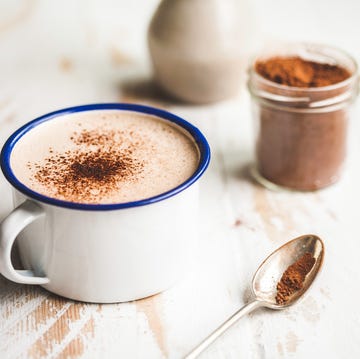Few things impact a race or major workout more than the foods and liquids you consume (or don’t consume) in the hours leading up to the event. No matter how hard you’ve trained, without adequate nutrition your body won’t be able to meet the demands of a long race. And that can diminish your performance and any potential fitness gains.
“Fueling before an event is a big factor in an athlete’s success during the ride,” says sports dietitian Kristen Arnold, MS, RDN, CSSD. “If the athlete isn’t fueled properly beforehand, they may not have the stored energy to be successful.”
Figuring out what to eat before a ride, however, can be daunting. Timing is critical, as is making sure your meals contain the ideal ratio of macronutrients (protein, carbohydrate, fat). The following guide outlines the best foods to consume at different times leading up to a race or workout to streamline your choices, so you can focus on performance rather than worry about prep.
Keep this in mind: When it comes to pre-workout nutrition, you may need to experiment to find what works best for your body in terms performance and digestion. No single food or food group works for everyone, which is why multiple meal options are listed for each stage. Listen to your body—if you experience uncomfortable bloating or cramping during a ride, or your energy levels crash at any point, try a different combination of foods.
3 to 4 hours before your ride
According to Arnold, most athletes will perform best when they consume a fairly substantial meal containing both complex and simple carbs, with lesser amounts of protein and fat, a few hours before a ride. The combo helps reduce hunger and stabilize blood sugar. Fatigue during prolonged exercise is often linked to muscle glycogen depletion and reduced blood-glucose levels. “That’s why eating a carbohydrate-rich meal before a big training ride or race to make sure your carb stores are topped off can help stave off fatigue,” says Arnold. Research shows that high-carb intake can translate to improved peak performance and time to exhaustion compared with lower-carb intake.
“Substantial” doesn’t mean you should stuff yourself. Arnold recommends 500 to 700 calories consisting of at least two grams of carbohydrate per kilogram of body weight (or just under one gram per pound). A 150-pound rider, for example, should aim for at least 140 grams of carbs. Round out the meal with moderate amounts of protein and fat—somewhere around 20 to 30 grams of protein and 5 to 10 grams of fat. Test out variations of this meal in the days or weeks leading up to a race so that you know exactly which foods feel right for your body.
What to Eat (choose one of the following)
- Bagel sandwich with turkey, lettuce, tomato, and mustard; 1 medium sweet potato; 1 orange
- 2 cups cooked pasta with meat sauce; 1 large bread roll
- 4 ounces cooked chicken; 2 cups cooked rice; 1 cup roasted beets; 1 muffin
Pre-Ride Tip: Fiber is an important component of a healthy diet, but you may be better off limiting fiber intake before hard workouts to reduce the risk of uncomfortable gut issues like bloating. Choose low-fiber carbs, such as pasta, rather than beans or raw vegetables.
60 to 90 minutes before your ride
With your race or workout about an hour away, your focus now should be on staying energized. The right nutrients in proper amounts at this time can help top off your fuel tank, prevent low blood sugar, and control hunger pangs.
If you ate a well-balanced meal a couple of hours beforehand, a light snack of 150 to 250 calories with 25 to 50 grams of easy-to-digest carbs, plus modest amounts of protein and fat, should suffice. According to the International Society of Sports Nutrition, a pre-workout snack containing carbohydrates with a small amount of protein may improve muscle strength, reduce muscle damage, and improve athletic performance. This is not a time to be eating lentil salads, hunks of meat, and spoonfuls of peanut butter, as these types of foods are slow to digest due to high fiber, protein, and fat content, respectively. You also don’t want too many sugary-carb calories, since they can cause a quick blood sugar spike and a subsequent energy crash.
One caveat: Arnold cautions that in some cases a carb-rich snack an hour before exercise can contribute to blood sugar drops at the onset of movement, which may negatively impact performance, especially if the intensity is high from the get-go. If this happens, she recommends preparing a larger version of the pre-event meal three to four hours before (as detailed in the previous section), using this intermediary stage of prep to digest, then having a quick snack filled with simple carbs closer to the start of the race.
What to Eat (choose one of the following)
- 3/4 cup low-fat yogurt topped with 1/3 cup muesli
- 1-ounce pretzels with 1 string cheese
- Half a toasted English muffin topped with 1 tablespoon low-fat cream cheese and ¼ cup sliced strawberries
Pre-Ride Tip: If you’re working out first thing in the morning, you probably won’t be able to eat a substantial meal before you start racking up the miles. Fuel up well the night before, and opt for one of the above snacks an hour or so prior to your a.m. ride.
10 to 20 minutes before your ride
This is your last chance to pump some fuel into the tank to prevent drops in blood sugar and muscle glycogen. “Consuming something here can contribute to your fuel during the ride and ensure you have energy on board for a potentially fast and hard start,” Arnold says, adding that a simple carb (sugar) source that won’t cause GI issues is your best bet.
A perfect option for this stage of prep is the liquid energy from Chargel. The caffeine-free gel drink—available in White Grape, Green Apple, and Strawberry flavors with no artificial sweeteners—supplies plenty of fast-acting carbohydrate energy for a last-minute boost. It contains more water than most gel products, making for a pleasant texture and easy digestibility. You can use Chargel during (not just before) long rides to keep your energy reserves topped off, thanks to its easy-to-transport pouch.
What to Eat
Pre-Ride Tip: Don’t forget water. Although fluid recommendations vary based on several variables including body weight, climate, and sweat rates, Arnold advises drinking 16 to 32 ounces of water two to four hours before the start of the event, plus another 8 to 12 ounces within 20 minutes of your ride.
